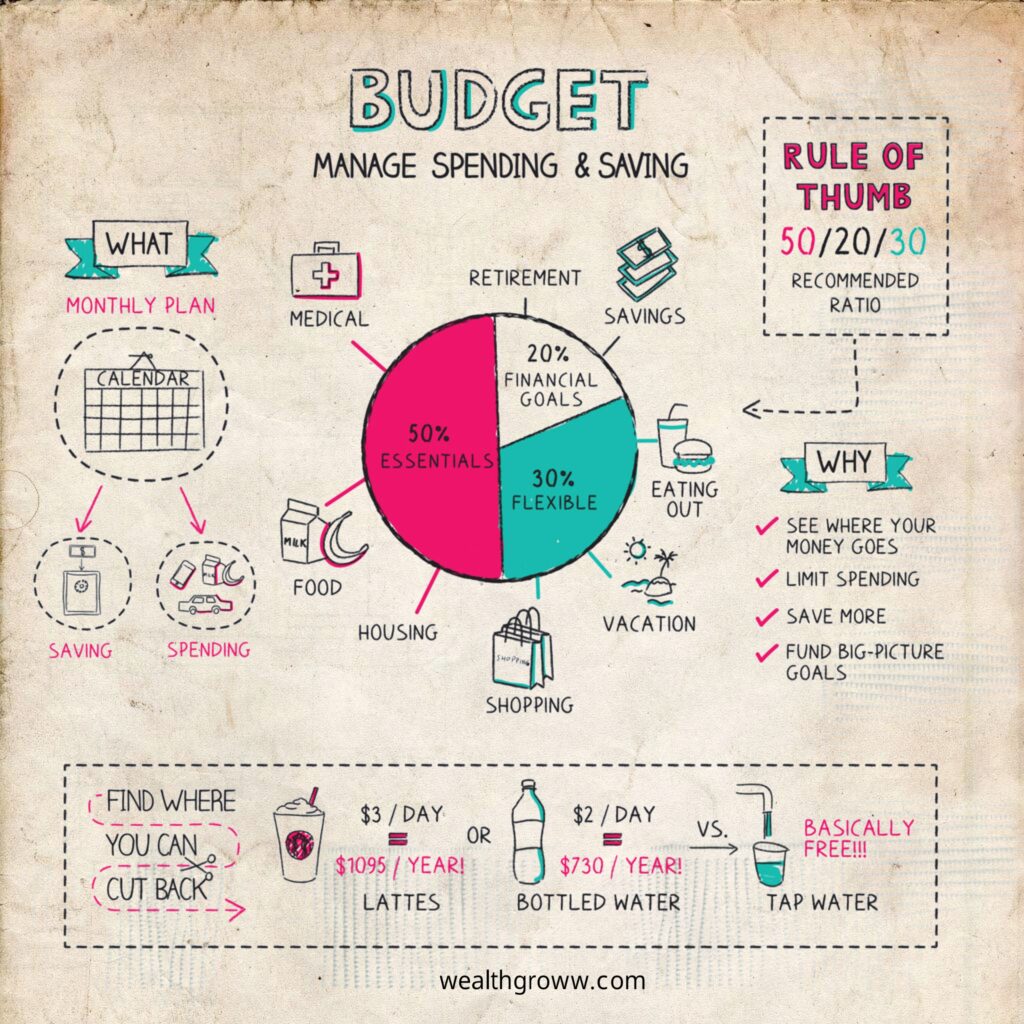
Budget
Nickels and Dimes
Budget is a management plan which you can use to manage your spending and saving. When you follow a budget, you set limits on where your money goes. Budget helps in improving your financial fortunes as it aids in balancing not more than what you earn.
The benefits of budgeting include:
- Getting a clearer picture of where you actually spend your money (hello, takeout).
- You have to make sure that you have enough money for your needs while limiting the stuffs you spend on your wants.
- Saving more money.
- Freeing up more money to pay down debt and fund other big-picture goals.
“Beware of little expenses. A small leak will sink a great ship.“
—Benjamin Franklin
How to make a budget
Here’s the basic process for getting started with budgeting:
Step 1: Calculate how much you have earned other than tax.
Step 2: track your expenses for few months and notice your typical spending.
An app can regulate you expenses by alerts. Many budgeting apps can do this for you automatically.
Step 3: Decide what categories you’ll use for your budget and come up with a monthly limit for each one, like $200 per month for eating out.
Step 4: Stick to your limits. A good app can also help you with this step—such as by alerting you when you’ve reached your limits for the month.
Step 5: Once you’ve gotten into the habit of watching your spending, try to find more places to cut back.
The 50–20–30 budget
- 50% for essentials—including rent, utilities, groceries, and healthcare.
- 20% for financial goals—such as paying down debt, saving up a down payment, or funding your retirement.
- 30% for flexible spending—including entertainment, vacations, eating out, and nonessential purchases.
Long-term goals
Budget helps in faster progress towards your long term financial goals like, buying a house, paying off debt, going on vacation. or even just saving up for a bougie brunch with friends. How can you do that?
Pick a goal
(make it realistic)
↓
Figure out how much money you need for it
↓
Mark your time frame for completing your goals. And make it reasonable.
↓
Go for weekly, monthly or annual saving targets which will help you to reach your goals.
↓
Carve out space in your budget to save money for your goal
↓
Keep saving!
↓
Check in on your progress
and adjust as needed
Stick to it
discipline is a tool when it comes to budget. You have to manage your interests to save money, and you can do it easily by,.
- Keep it reasonable. Are you really going to skip your favorite coffee shop for an entire 30 days? Can you actually eat only lentils for a month
- Use an app (or even just a paper on the frige!) to track your spending and savings and remind you when bills are due.
- Automate your deposits to savings or funds for other goals – so that you lack the chance to spend your money anywhere.
- You have alot of stuffs to pull your craving for instant gratification.
- Find compromises like making restaurant like food at home.
.Adjust with tiny rewards for staying the course like opting for tv binging.
Conclusion
Budget can help you to understand better where your money is going.
It will fix your long term goals stay away from debt and bring more discipline to manage your finances.
Fun facts
- The word budget comes from the French word bougette, meaning “leather bag.”
- In a year, the average American family spends $710 on their pets, $558 on alcohol, and only $110 on reading materials. #priorities
Key takeaways
- Budget is a plan which will let you manage your spendings.
- Using a budget can be a powerful way to make sure you’re living within your means.
- You can come up with a custom-made budget or try a 50–20–30 budget.
- Apps can set you on regulation.
Only if everyone is interested in Budgeting as they are finding a shoe to binge watch on Netflix. — wealth groww

